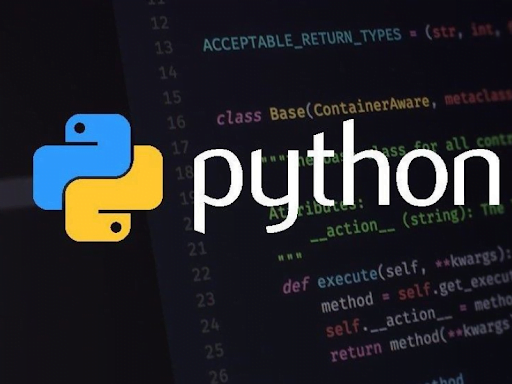Python is the most widely used programming language in the world. Strengthening your Python programming skills in order to become a professional programmer.
What is Python programming? Python programming steps for beginners
In the era of technology 4.0, programming becomes an essential area to assist promote the period to make greater strides. With the flexibility and the diverse library, Python was intended to make programmers’ job more efficient. As a result, it quickly became the most commonly utilized programming language. What is Python programming? What is its purpose? How to learn it? The following article will introduce Python programming and show beginners how to learn effectively.
What is Python programming?
Python is a high-level programming language that is used by computer to create websites and applications, automate operations, and analyze data. This programming language has a simple structure that allows even beginners to utilize. Python can supports many different multi-programming patterns such as object-oriented programming, functional programming. As a result, it is used in various sectors such as web development, 3D or CAD.

What Python programming is used for?
With simple features, easy to use, along with owning a large number of database blocks, it has wide applications in several fields.
Data Science and Data Analysis
Python performs excellently at all stages of data analysis. This is due to the simplicity and convenience of Python packages developed for data research. The three most common applications of Python programming in data analysis are data mining, data processing, and modeling – data visualization. Python programming is widely used by data scientists for exploratory analysis and repeatable research.

Machine Learning and Artificial Intelligence
Python programming benefits from prebuilt libraries, less code, and platform independence. It provides over 100 diverse libraries with pre-written code to assist programmers in implementing Machine Learning and Deep Learning algorithms. As a result, it is widely used for machine learning and artificial intelligence, with packages like TensorFlow and scikit-learn providing strong tools for these tasks.
Web development
Python is an excellent choice for web development since it has several web frameworks, including Django, Pyramid, and Flask. These frameworks have been utilized in the development of websites and services such as Spotify, Reddit, and Mozilla. Moreover, Python frameworks provide libraries and extension modules that make database access, content management, and data authoring capabilities feasible and simple.
Automation and software development
Python can assist in the automation of a repetitive process. The process of developing the code that is utilized to construct these automated processes is called scripting. Python may even be used by amateurs to automate simple computer tasks like renaming files, downloading documents, or sending emails or SMS at predetermined intervals.
Python may responsible for build control, bug tracking, and testing in software development. Software developers may use Python to automatically test new products and features.
How to Learn Python programming: Step-by-Step Guide
In reality, many beginners have trouble comprehending Python. Learn how to program in Python by following the instructions mentioned here.
Learn the basic syntax of python
You must first install Python by visiting the official Python website and downloading it. Following that, you must understand Python’s syntax and fundamental components, such as data types, variables, data structures such as arrays, tuples, dictionaries, functions, and conditional statements, which serve as the basis for all programming languages.

Practice coding every day
Practicing will aid you recall how to utilize the tools, statements, functions, data types, and others that you’ve studied. Similarly, when studying Python programming, a lot of practice is required to better recall the knowledge.
Start building projects and establish a portfolio
Practice with projects once you’ve mastered the fundamentals of Python syntax. Begin with pre-structured tasks such as data science, machine learning, or dataquest. As you finish a project, share it with others to gain comments that will help you improve.
Expand your knowledge of Advanced Python topics
After learning the fundamentals of Python programming, you may go further into advanced subjects such as software design patterns, object-oriented programming, data structures, and algorithms. Utilize the exercises and projects to deepen your understanding of these principles so you may apply them to any personal or open source project.
CONCLUSION
In general, learning Python programming is not difficult; however, in order to master, you must have a defined training plan and patience to study. Prioritize practice above the mastery of fundamental syntax to better grasp what you have learned. Hopefully, the information presented above will help you gain a better grasp of Python programming and learn how to become proficient in this programming language.


